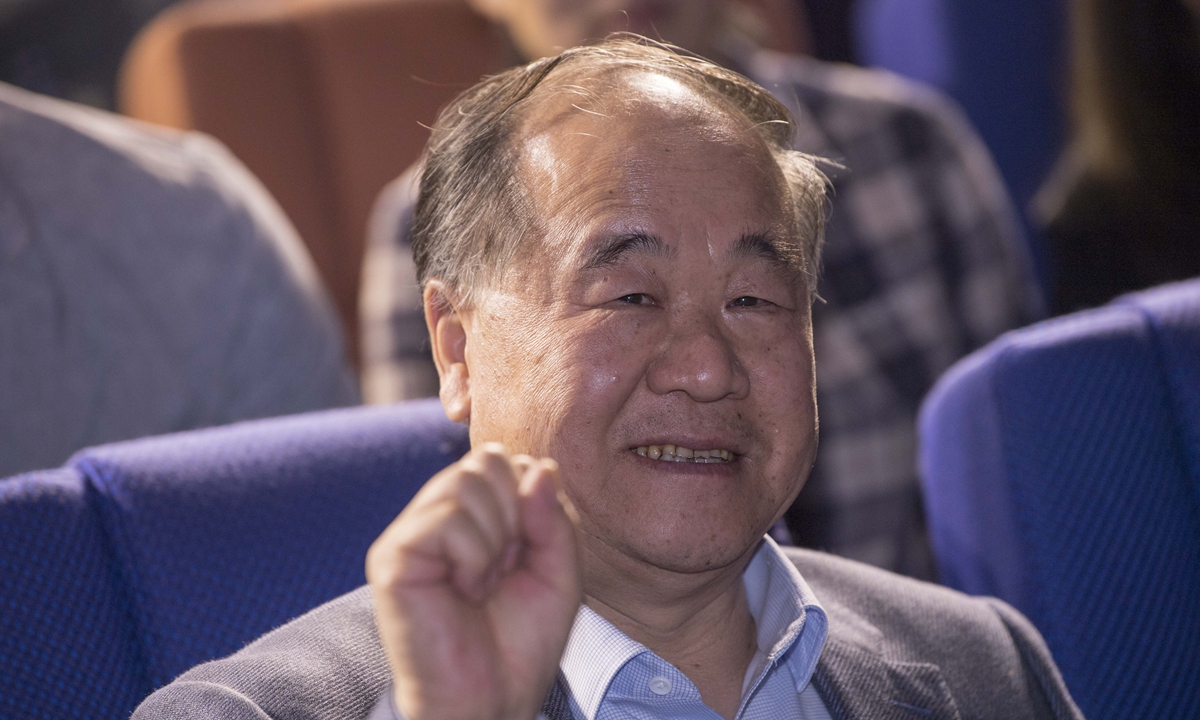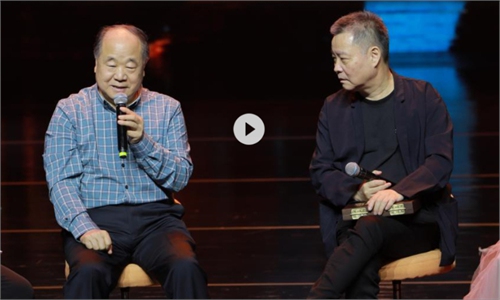AI booms won't cause much crisis to literature; every scientific advance gives it new wings: Chinese Nobel Prize winner

Chinese Nobel laureate Mo Yan Photo: IC
"Literature will never die out with the progress of science," Chinese Nobel Prize winner Mo Yan said on Monday. Instead, "Every scientific advance will give literature new wings," Mo said during a speech at an event where Mo and another Nobel Prize winner in literature Abdulrazak Gurnah had a dialogue.
Mo's remarks were regarded as a response to mounting public concern whether AI would take over the world of literature as technology continues to advance.
According to Mo, literature is a phenomenon that appears only after human progress has reached a very high stage in human history.
"When I started writing in the 1980s, I heard a lot of alarm bells ringing about literature that with the advent of television and the internet, the future of literature was at stake, and the fate of literature might be over," Mo continued.
"But it turns out that literature never dies with the progress of science, and every scientific advance gives literature new wings," the writer stated.
"Therefore, I believe that the emergence of AI will not cause a great crisis in literature, and the profession of writer will not end here," Mo said.
The renowned Chinese writer believes that for a long time, the unique and vivid thinking of writers will remain irreplaceable by AI, and a senior writer's work is hard for a computer to imitate.
"Mr. Gurnah and I should never lose our jobs in our lifetime," Mo noted.
"But we know that AI is indeed powerful, and we must not underestimate it. This forces us to think in a more personalized and imaginative way," Mo said.
Not long after ChatGPT was widely unveiled, some people asked the artificial-intelligence program directly what AI means for writers.
According to an editorial article published last year, some believe that given the speed of machine learning, it was inevitable that sooner rather than later, AI would be able to create credible facsimiles of human-generated writing, and indeed that's already happening.
While the work (made by the AI program) can still be riddled with errors, biases, or just plain bad or basic writing and storytelling, it's not that far-fetched to believe that as artificial intelligence gains ever more data to "learn" from, it will get better and better at writing at a frightening speed, said the editorial article.
Challenged by booming AI technology, Mo stressed on Monday that writers need to search for irreplaceable resources from their own national and traditional heritage.
"Building on the foundation of inheriting and promoting our own national and cultural heritage, we should widely accept and absorb the creative achievements of writers from other countries," Mo put forward.
"In the past few days, I have gained a lot from reading Mr. Gurnah 's works. The most important thing I discovered while reading his works is that they have elements that my own works lack," the Chinese litterateur said, noting that Gurnah's writings have opened a window for him to understand Africa, depicting many aspects of life and emotions that he is not familiar with.
The reason literature can reach the world, and an author's works from one country can be accepted by readers from another country, is because their works embody common human values, Mo pointed out.
"The reason we can read Mr. Gurnah's books, and why some African writers can read my books, is because we all depict common human emotions, joys, sorrows, separations, destinies, encounters, aspirations for the future, dissatisfaction with reality, and pursuit of a better life," Mo revealed.
Gurnah, a Tanzanian-born British novelist arrived in China on March 5, his first visit to the country.
Global Times

